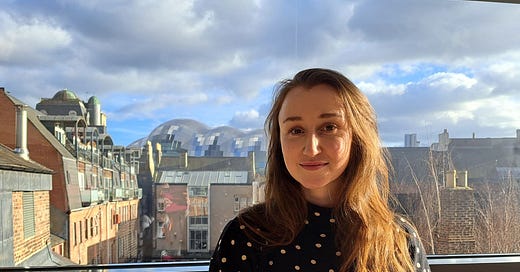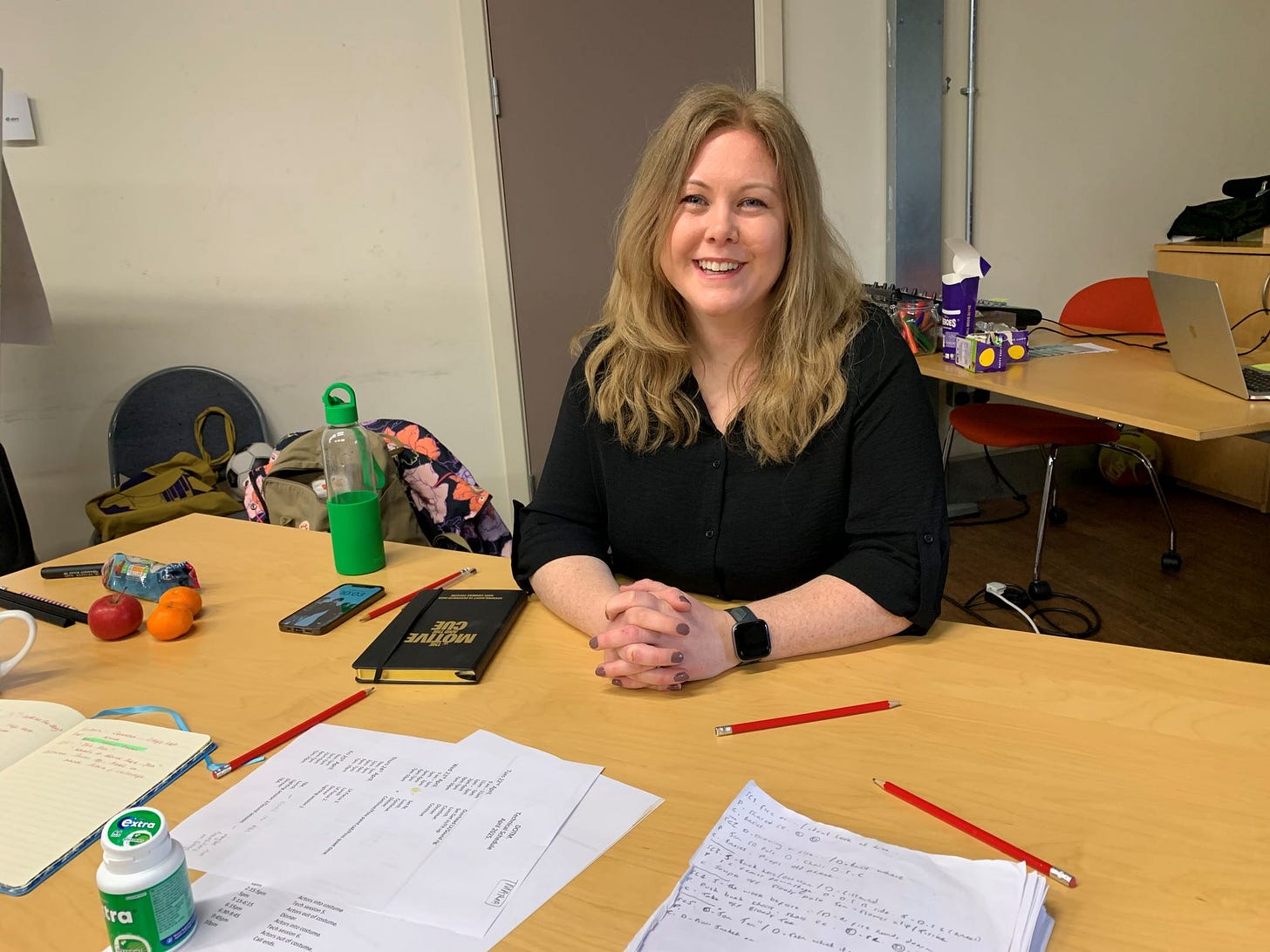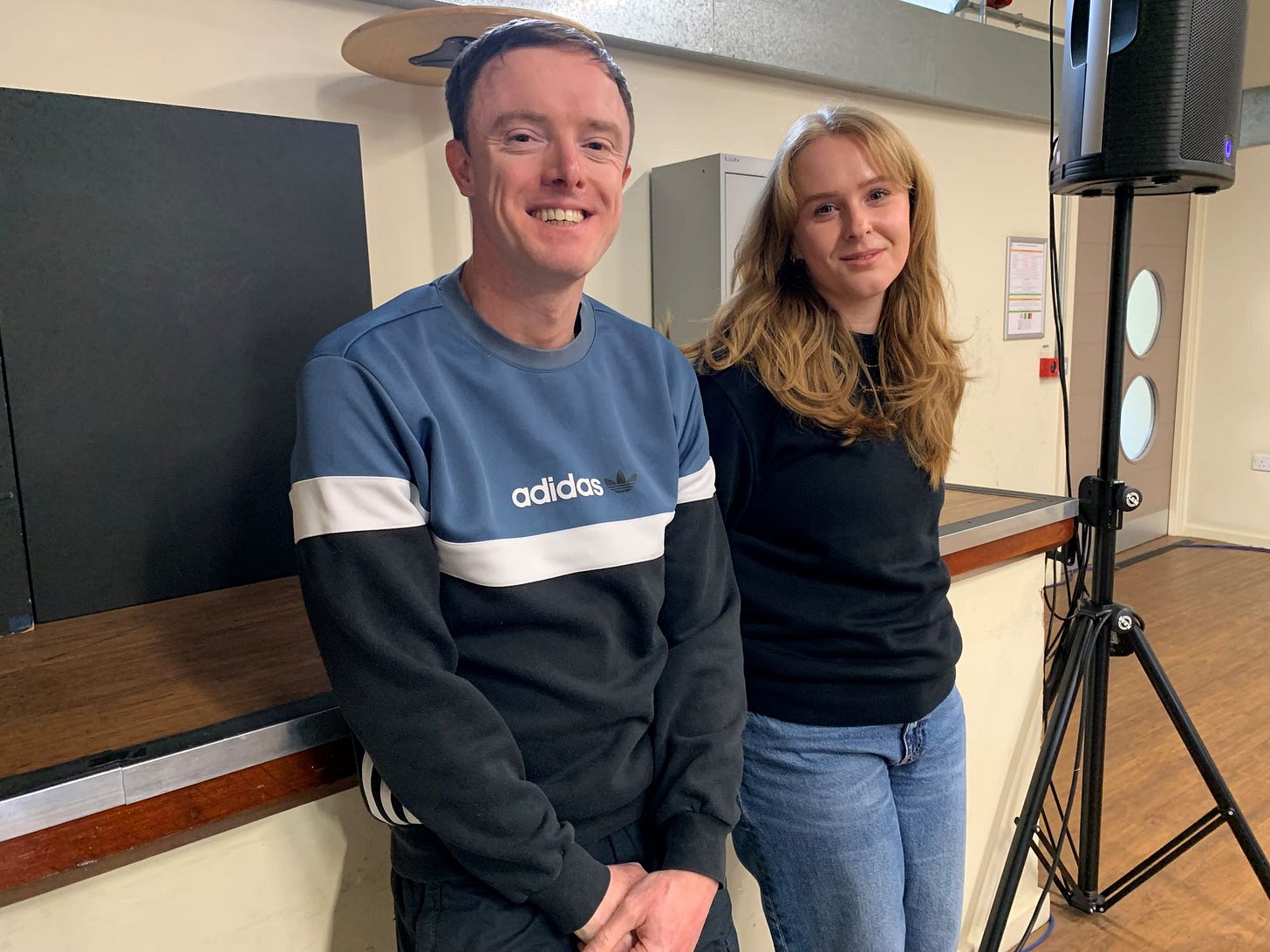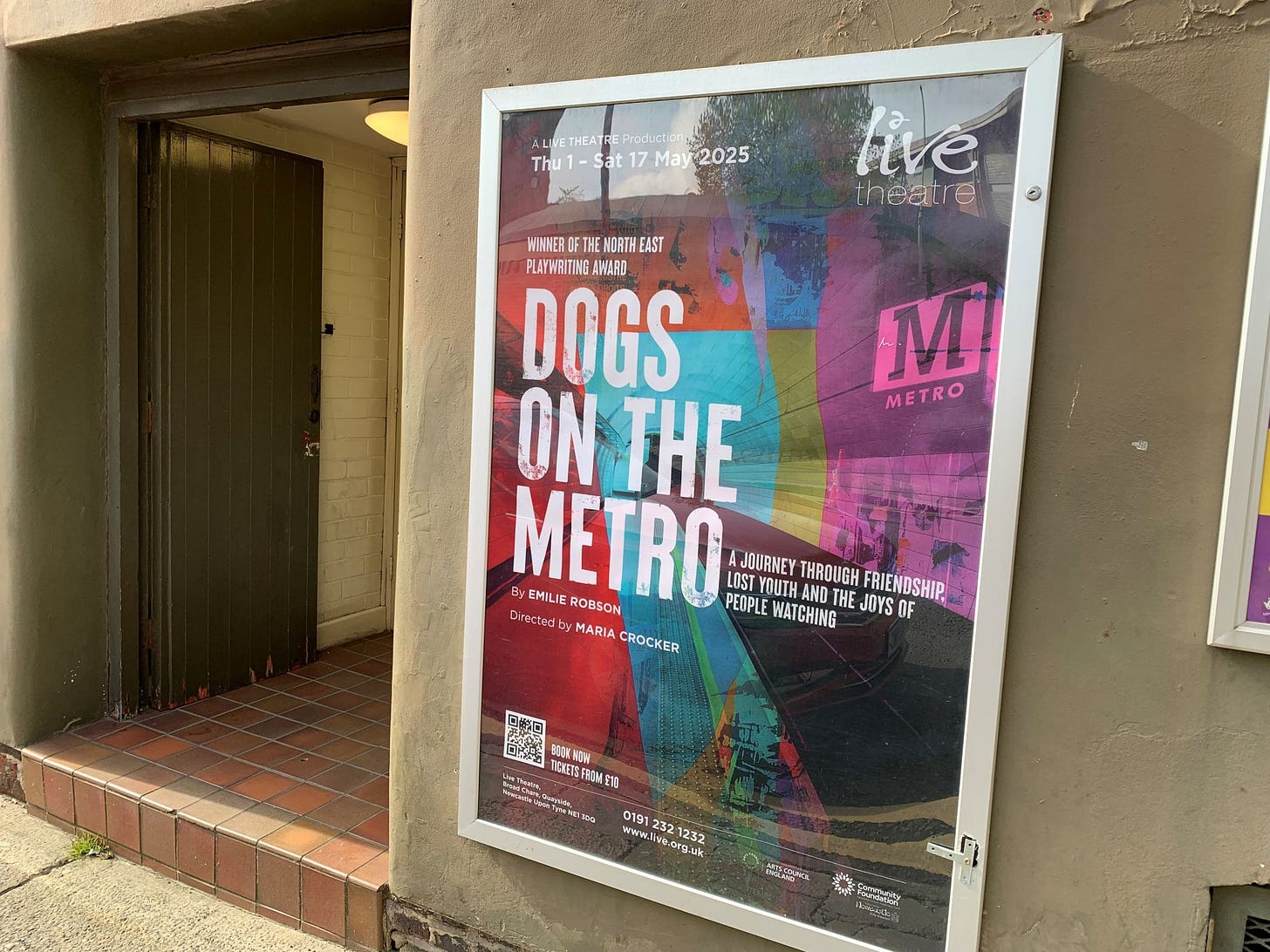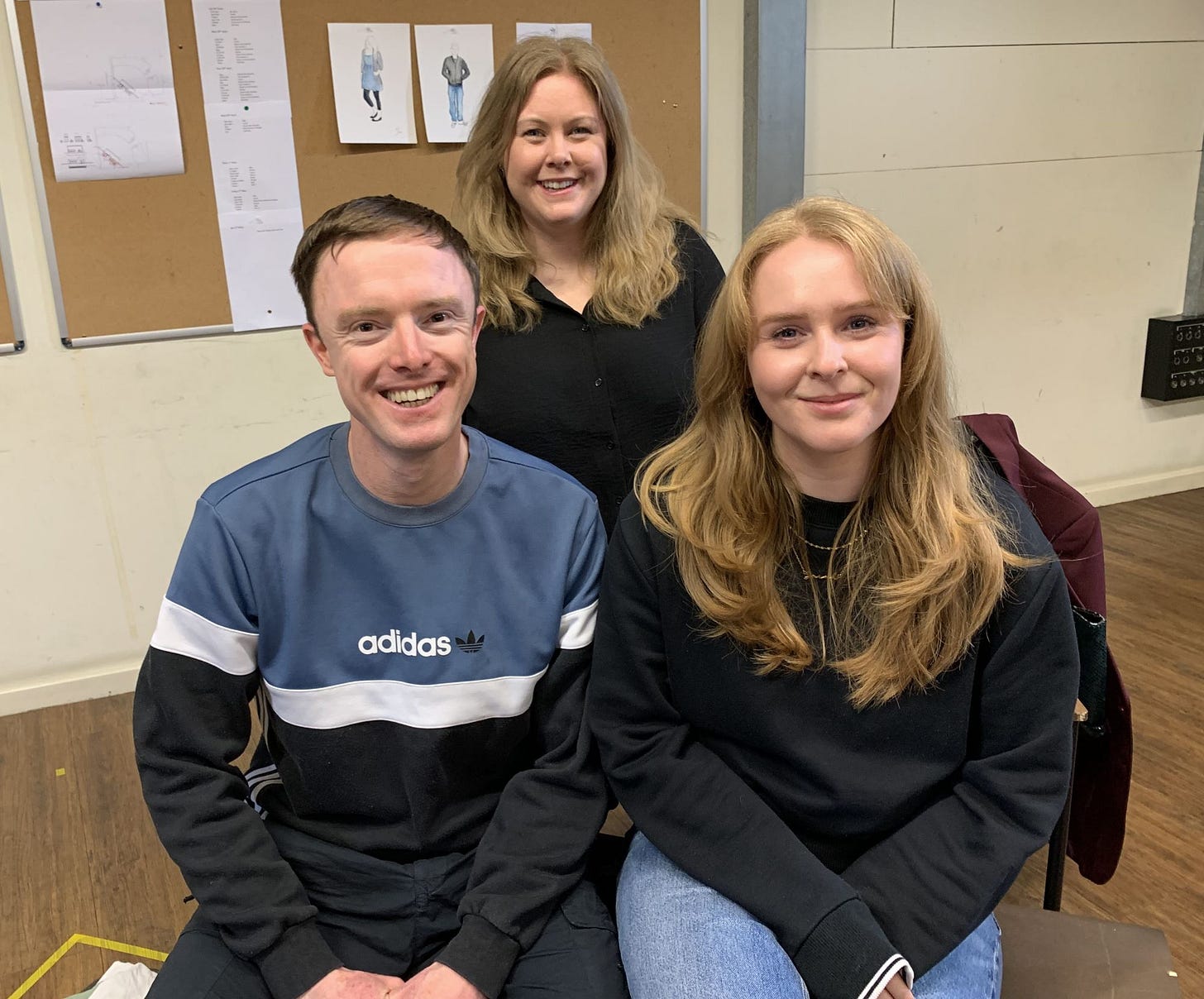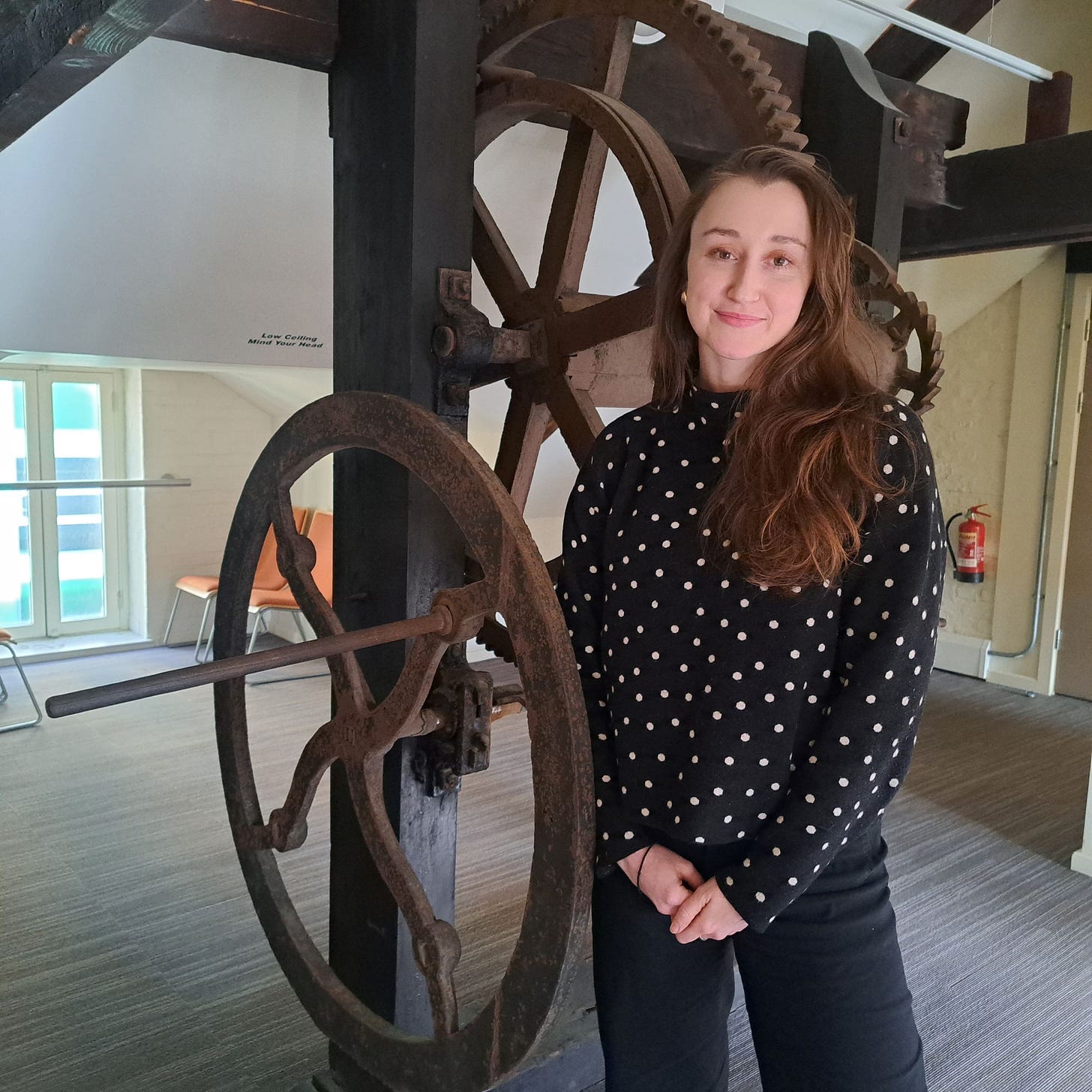It was a little over a year ago that Emilie Robson won Live Theatre’s inaugural North East Playwriting Award and naturally, with the premiere performance of her winning entry just days away, she’s excited.
“It’s my first professionally produced play and the first thing I’ve had on in the North East,” says the writer from South Shields, revealing that she submitted an early version of it in 2017 and received a polite rejection.
“Obviously there will be some nerves but mostly I just can’t wait to see it. It is very exciting and I know they’re going to smash it.”
‘They’ are actors Sarah Balfour and Dean Logan, and also director Maria Crocker, who have been rehearsing Dogs on the Metro and clearly share the judges’ assessment of the play.
“Emilie’s written a fantastic, challenging script and you can see why it won the award because it’s such a sharp, complex, brilliant piece of writing,” says Maria.
“As soon as I read it I knew I wanted to direct it. It’s the sort of thing I want to see on stage.”
So what’s it about, this play which has wowed everyone, including Shelagh Stephenson, renowned playwright and one of the judges, who called Emilie’s entry “sharp, funny, true and precise”?
Just to clear up one thing, there are no dogs in it. The actors confirm as much before getting down to rehearsal.
The title, they say, comes from the dialogue, from the chat between teenagers Dean, played by Dean (convenient, he smiles, but obviously not why he got the part), and Jen, played by Sarah, who, like Emilie, comes from South Shields (“another ‘sand dancer’”, she says).
“No real dogs,” adds Maria. “It’s a reference between the two that brings some lightness, fun and joy.”
We meet the young Geordie protagonists on the Metro – that much of the title won’t disappoint – and it’s the setting for this tale of a friendship clouded, as Live Theatre puts it, by one “pivotal event that changed everything”.
Emilie says it was an incident at a party, a sexual assault not shown on stage but key to what unfolds.
Most of the action takes place in 2008 when Dean and Jen are 16, as Emilie would have been that year although she insists the play isn’t autobiographical, even if it reflects “incidents of that colour that I look back on”.
Elaborating, she says she recalls awkward experiences that she and female friends would regale each other with and laugh about.
“We just didn’t understand. We were in a male-dominated space, often quite toxic, and I think we thought we were the necessary collateral damage in boys being boys.
“I think there’s a sort of strength in numbers now and largely a consensus about what’s right and wrong, but at that time there was a weird mob mentality and we felt we had to grin and bear it.”
If 2008 doesn’t seem long ago (maybe it does if you were just 16) how far we’ve come! The #MeToo movement, which saw women unburden themselves of long suppressed anguish, has shown up ‘toxic’ masculinity for what it is.
But Dogs on the Metro, judging by what all involved are saying, is not a strident counterblast, a tale of female revenge and male comeuppance.
“Any sexual assault is a violent act,” reminds Sarah Balfour.
“We’re not taking the weight from that experience. It’s very much this awful thing that, unfortunately, so many women have been through.
“But this is a play about two teenagers and their friendship. We follow them through adolescence, these normal kids who go to parties.
“And then this event happens and there’s a shift in their friendship, and it’s about how they have to navigate that without the language to speak about it.
“That’s the crux. They don’t know how to articulate how they’re feeling. Especially Jen. She’s got no idea how to explain. It’s really complex and hard for her.
“Take the basics, like sex education in school. Who back then was being taught about consent? It wasn’t anything we were told about.”
Emilie, speaking after the actors have returned to work, says #MeToo was “a moment of reckoning, a necessary but painful cultural moment.
“We’re not out the other side of it but what I think we have now is a sort of backlash in which a lot of young men have ended up feeling alienated and aggrieved.
“They’ve felt they’re inherently bad and irredeemable in any mistakes they make. They run the risk of being cancelled and having their lives destroyed.
“We didn’t want Dean to be this horrible person who’s been tarnished with the brush of doing something terrible for what was an honest mistake.
“I think people do make honest mistakes but what we’ve got at the minute is a culture that’s not allowing people to make mistakes or even have conversations. I think it’s drawn a lot of young men into extreme viewpoints.”
Rather than proceed in a straightforward timeline, Emilie’s play flashes forwards and backwards to show the repercussions of that pivotal occurrence.
“It’s about the before and after, and about how these things can play out in your memory,” she says.
“How you can mix certain details and not be entirely sure when things happened or if you’re mis-remembering them.”
Both characters, she says, have a slightly different understanding of what took place. “From the lad’s perspective it was consensual, slightly awkward but fine.
“From the girl’s perspective, and with a little distance, she starts to realise it wasn’t exactly consensual.
“A lot of it’s about that confusion, how you can fancy someone and love their company but it doesn’t necessarily equate to consent.
“If two people aren’t really listening to each other or seeing signs that the other person isn’t having a good time, it can be the start of a slippery slope.”
It won’t surprise you to learn that Emilie Robson is not quite a rookie writer.
She remembers herself, growing up in South Shields, as “an embarrassing child who desperately wanted to do proper acting but sang as well”.
Amateur dramatics was an outlet but film and TV, her first love, had seemed impenetrable. “Theatre was a way of going, ‘Right, I can do this myself or with my mates and we don’t need a production company’.”
At university in Edinburgh, studying drama, she began writing and putting on self-produced shows. She had some success on the Edinburgh Fringe, went to Glasgow to do a Master’s in theatre studies and had a play on BBC Radio 4.
She won coveted places on screen writing schemes with the BBC and Channel 4, enabling her to penetrate the once seemingly impenetrable.
For the past four years she has been screenwriting, contributing to “other people’s shows that will hopefully be out next year”. A book adaptation is with the BBC and Sky are sniffing around one of her submissions.
None of this she makes sound in the least bit glamorous.
“Doesn’t mean any of it’ll get made. It’s a slow process. It’s a lot to back a new writer and you need credits behind you before people take you seriously.
“I’d love to do more theatre. This experience has given me the bug again. I’m in awe of people who work exclusively in theatre because they’re so much more talented than us hacks working in TV.”
For an award-winning playwright, doors will surely open.
Dogs on the Metro runs from May 1-17. Tickets from the Live Theatre website or call 0191 2321232.


